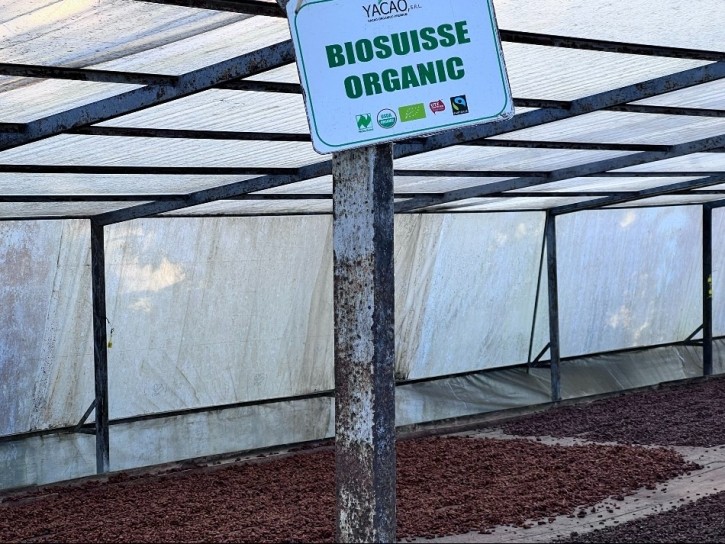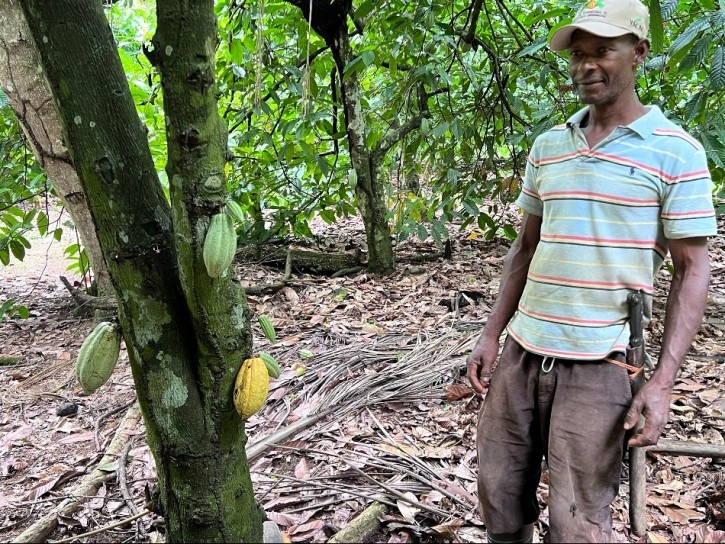FUNDOPO is a small-holder farmer cooperative within the Dominican Republic that works completely with natural cocoa farmers. It’s already totally compliant with many certifications required to promote its beans internationally.
Europe is its main market, and it really works with YACAO, an natural processing and delivery firm and a subsidiary of PRONATEC. This Swiss natural cocoa processor imports beans into Europe, already complying with strict sustainable and natural legal guidelines.
FUNDOPO has run alongside strict Fairtrade tips nearly because it was established in 2000. It’s a non-profit group. In addition to Fairtrade, it really works with particular natural certifications corresponding to BIO Suisse Natural, NOP (USDA) BIO Europe, Naturland, UTZ, Honest For Life, BIO Europe (EU 834/2007) – and now, the most recent one, Licensed Regenerative (ROC).
The European Fee urgently must step up coordinated efforts to evaluate country-by-country readiness and impacts on coated sectors, in shut collaboration with native stakeholders — Jon Walker, Senior Advisor, Cocoa, Fairtrade Worldwide
Then there may be the EUDR to adjust to in 2024, the place to qualify as ‘deforestation-free,’ cocoa and different commodities should have been produced on land that has not been topic to deforestation after 31 December 2020.
Most of the standards imposed by the EUDR are already in place on FUNDOPO’S farms due to its natural farming practices. Nevertheless, a spokesperson stated it’s nonetheless fighting all the brand new tips and the introduction of different certification our bodies on prime of an already rising checklist.
A spokesperson for YACAO stated: “We want natural certification as a result of, for us, it is the correct strategy to deal with the earth, however we have already got these present certifications, and the complexity and quantity … it is actually attending to a stage the place generally you are feeling it is changing into barely overwhelming.
“For no matter purpose, or supposedly the shopper will not be content material with BIO Suisse Natural, NOP (USDA) BIO Europe, Naturland or BIO Europe, then you definitely want Honest for Life, which is a competitor to Fairtrade, which actually will not be what you need since you desire a sturdy Fairtrade.
“Then you have got the Rainforest Alliance, which is type of Fairtrade however not natural. Then, you have got this new one referred to as Regenerative Natural certification, which is natural. However along with having that and complying with Fairtrade requirements, you must present that you just’re really giving again to the earth so that you just’re being ‘regenerative,’” he stated.
“We comply totally with the right certifications, which I feel many others wouldn’t have the ability to adjust to, however whereas certification work used to take up 60% of the cooperative director’s time, it’s now extra like 80%.”
Sandro Marti, Government Board Member of PRONATEC, agrees that administration work has change into disproportional: “And nonetheless, at PRONATEC, we’re satisfied that natural and Fairtrade certifications are the best way to go to supply cocoa sustainably. However we might admire it if this could possibly be an vital criterion when creating new labels: To make them very environment friendly when it comes to value and time efforts on the aspect of the cooperatives.”
Fairtrade Worldwide
Jon Walker, Senior Advisor, Cocoa, Fairtrade Worldwide, informed this publication he agrees that there’s a lack of readability on who pays the price of implementation of the EUDR necessities and fears it can have an uneven impression on smallholders relying on how or if their business companions select to assist them and what institutional assist there is perhaps.
“The European Fee urgently must step up coordinated efforts to evaluate country-by-country readiness and impacts on coated sectors, in shut collaboration with native stakeholders,” he informed ConfectioneryNews.
“From Fairtrade’s perspective, we’re taking motion to simplify and scale back the burden on cooperatives. For example, we have now partnered with Satelligence in order that when espresso and cocoa coops submit their geolocation knowledge, they’ll obtain satellite tv for pc deforestation threat evaluation freed from cost. They’ll then present this info to their business companions as a part of the chance evaluation wanted by EU Deforestation Regulation with the purpose that they preserve entry to the European market.”
He additionally agrees that the proliferation and duplication throughout certifications are additionally recognised challenges for cooperatives.
“We’ve been on the forefront in some areas of our requirements – corresponding to together with necessities associated to progress towards human rights and environmental due diligence or progressing towards dwelling wages for merchandise like bananas, tea, and flowers. On the identical time, we additionally search to align our requirements with rising optimistic developments in order that in following the Fairtrade Requirements, cooperatives shall be assembly different necessities as properly.
“Our Requirements session course of and remaining choice making by our Requirements Committee, which has equal producer illustration, are designed to mirror producers’ enter and wishes.”
Europe is the world’s main importer of cocoa beans, and Colombia is a world-leading provider of nice or flavour cocoa, rating fifth in world exports.
Juan Fernando Valenzuela Arango, Director of Buying and Agricultural Improvement operations administration at Compañía Nacional de Candies in Colombia, stated: “We additionally suppose the prices related to creating certifications and the EU’s necessary deforestation rules are excessive.”
To elucidate, he itemised the certification dedication that farming cooperatives his firm works with as follows:
1.1. What’s the stage of improvement the group has relating to certifications?
1.1.1. If the coop ( cooperative or Org) has cert´s expertise, it could possibly take between 10% – 15 % max of its funds.
1.1.2. If the coop doesn´t have cert’s expertise, it could possibly take 100% of the supervisor cert’s time
2. Deforestation :
2.1.1. If the coop has polygons and farmer info, it will be between 5-10 % of the coop funds.
2.2.2. If the coop would not have details about traceability and deforestation and should start from zero, it could possibly take as much as 100% of the supervisor’s time and 15% -20% of the final coop´s funds.
3. If we add each, the coop may have value between 15% – 25 % of its funds in a single case and between 10% and 20% of the final coop’s funds within the different.
Julia Ocampo, VP of Cacao Sourcing and Sustainability at Luker Chocolate, a Colombian family-owned model, additionally agreed: “There’s positively lots of work behind verifying and auditing sustainability. For instance, Luker Chocolate is totally aligned with the EUDR’s latest regulation, with some benefits contemplating that Colombian cocoa crops haven’t concerned deforestation.
“However, to show this truth, the funding from your entire provide chain is large, in documentation, polygons gathering, offline software program, manpower for verifications and audits. Including all of this to the opposite certifications working creates heavy administration for small farmers and small cocoa associations and for us as their companions.
“That is one thing we have to evaluation as an business and are available to phrases with higher alignment and extra sensible options which have the farmer on the centre.”
Farmer earnings
Whereas the brand new EUDR could stage out the enjoying discipline and symbolize a possibility to make a optimistic impression on the atmosphere in terms of rising cocoa and different commodities, the prices mustn’t solely relaxation on farmers who already wrestle with excessive poverty ranges, growing manufacturing prices, and different each day challenges.
Many Fairtrade cooperatives depend on the Fairtrade Premium, which is an additional fee to the farmers no matter market worth or farmgate worth: it’s an extra non-negotiable fee that goes to the farmers to learn the group.
Walker defended the Fairtrade Premium towards accusations that it has didn’t sustain exponentially with the value of cocoa beans in the marketplace and the rising prices of uncooked supplies.
“Cooperatives and their members resolve how the Fairtrade Premium is used. We publish knowledge on Premium use primarily based on world sampling. In 2021, he stated that 19% of the Premium for cocoa was paid out to coop members and their households, and an extra 14% was used to offer agricultural instruments and inputs,” he stated.
“The Fairtrade Premium for cocoa is about at $240 per tonne and reviewed periodically via session with consumers, governments, civil society, and most significantly, farmers. The ultimate choice is taken by the unbiased Fairtrade Requirements Committee. The final change took impact in October 2019, a 20% improve. A brand new evaluation course of is at present underway.”
However he agreed that farmers’ earnings and the correct to a dwelling wage for employed staff is vital. “Cooperatives want higher costs, longer-lasting enterprise relationships, and co-investment amongst all provide chain actors, particularly in terms of the prices to implement sturdy due diligence measures.”



